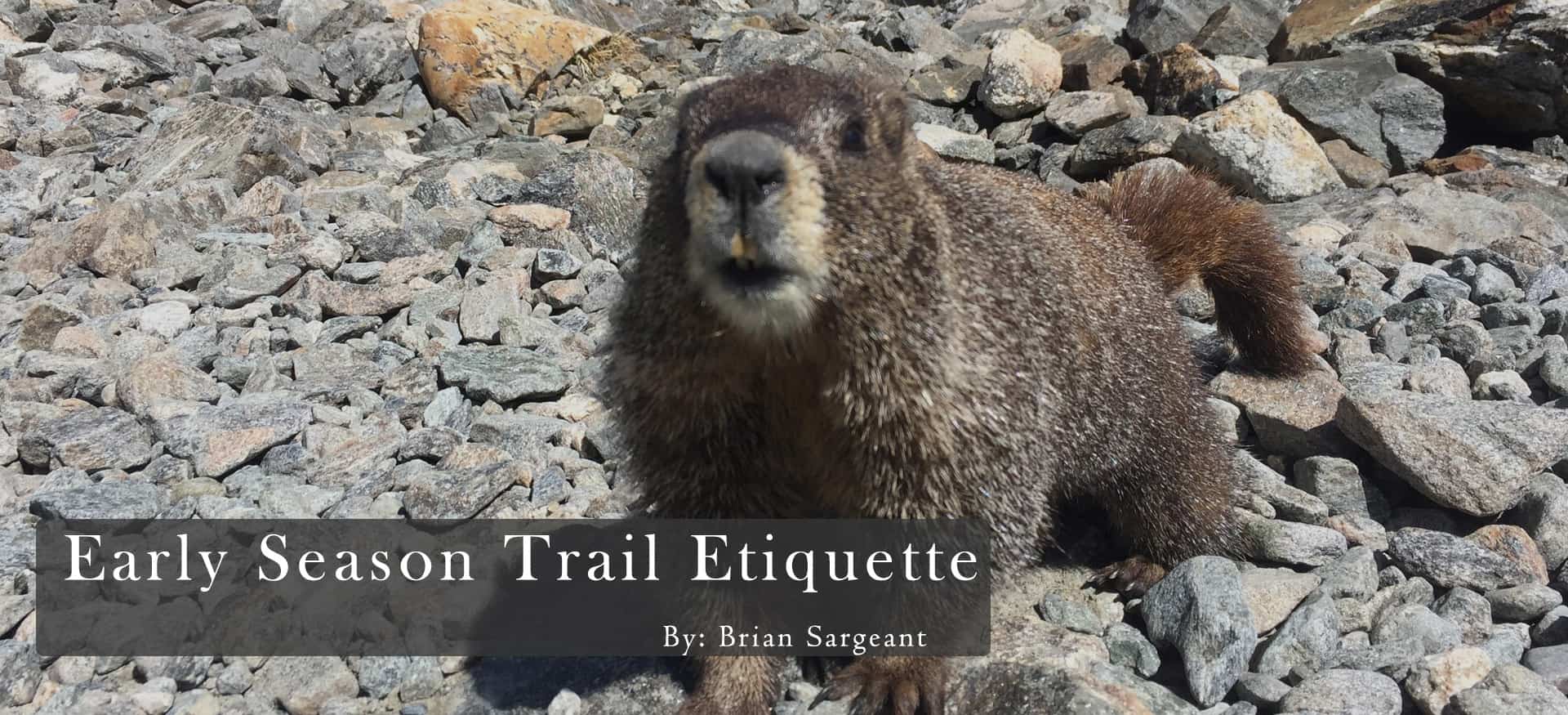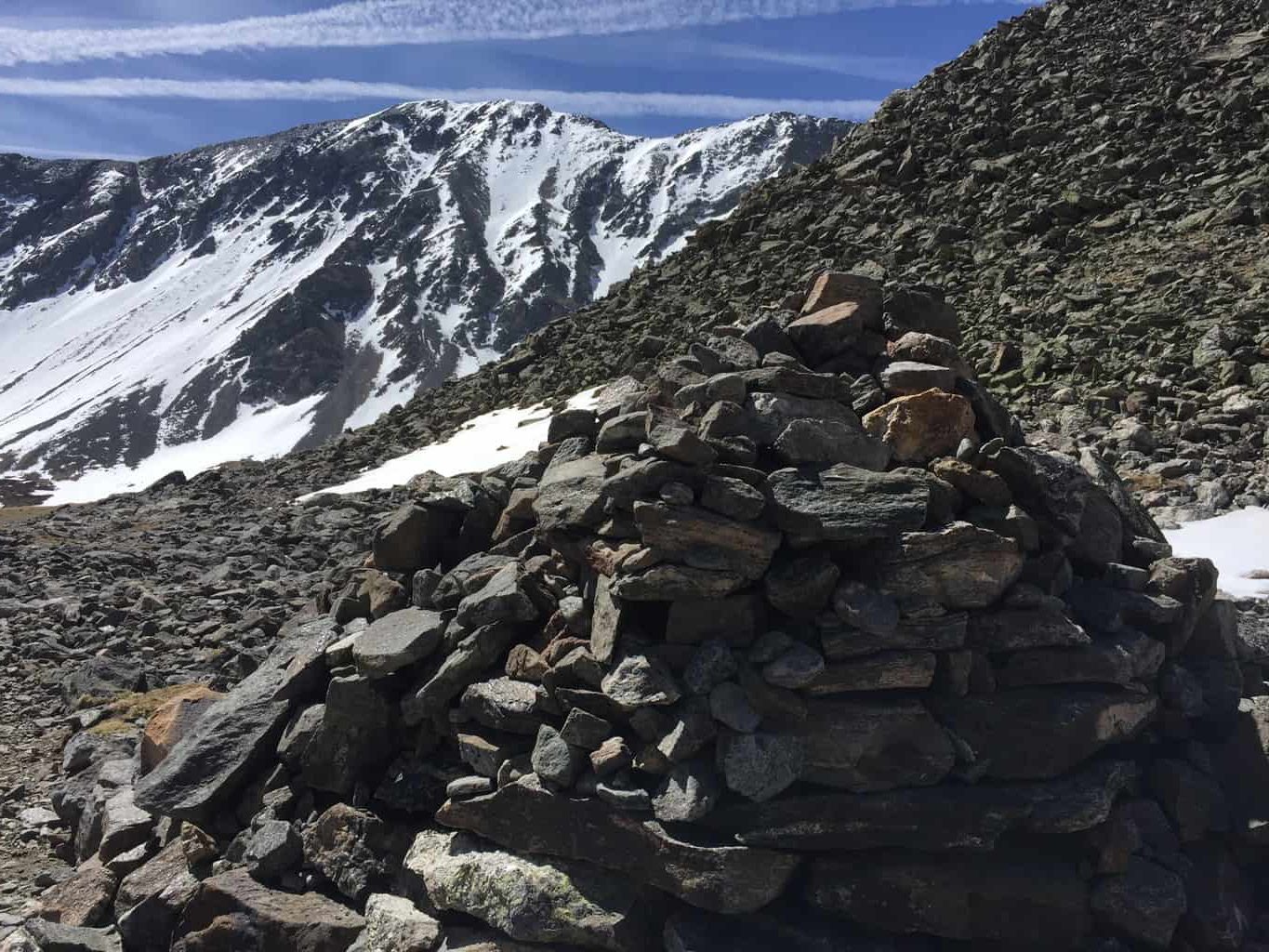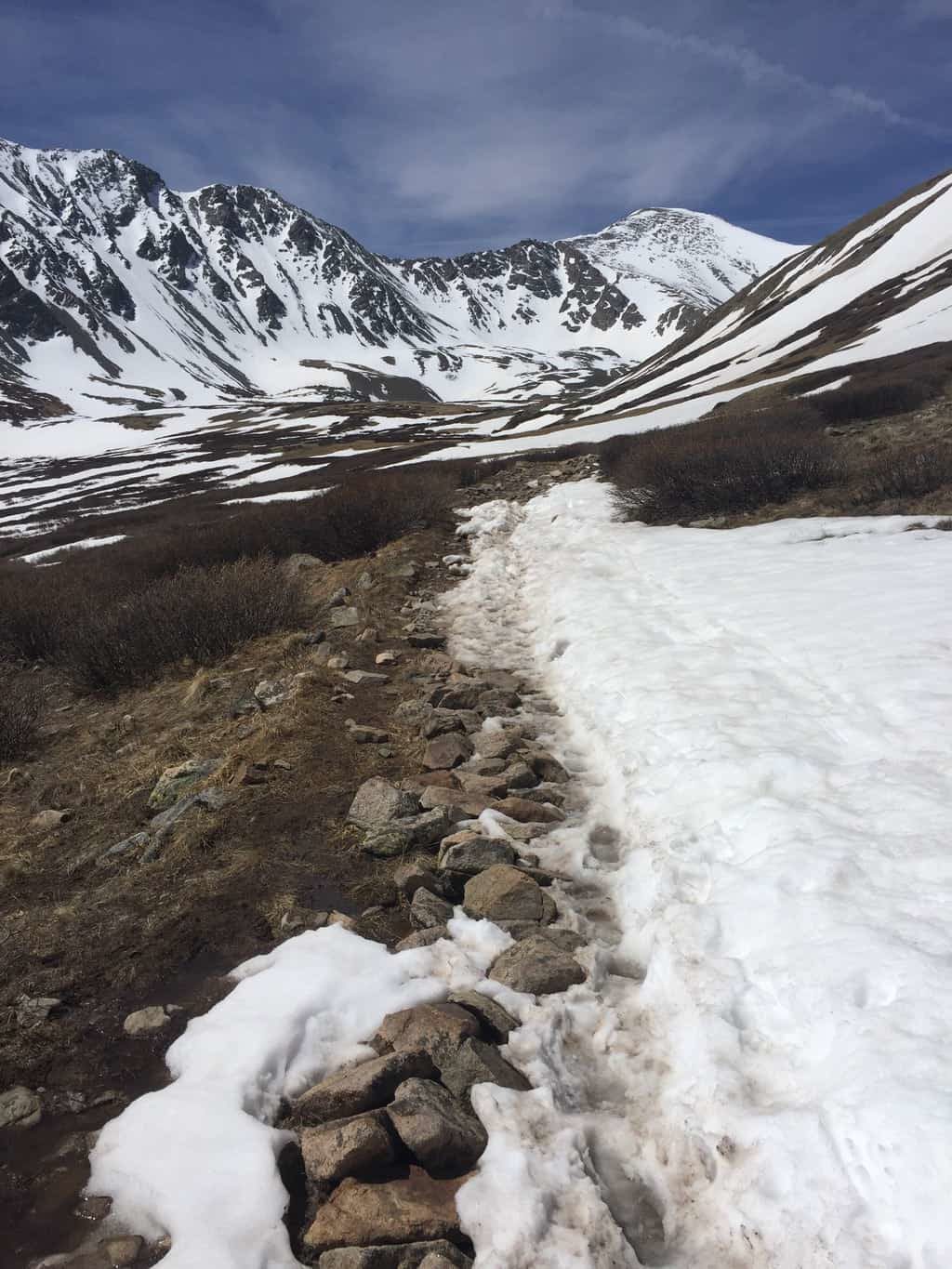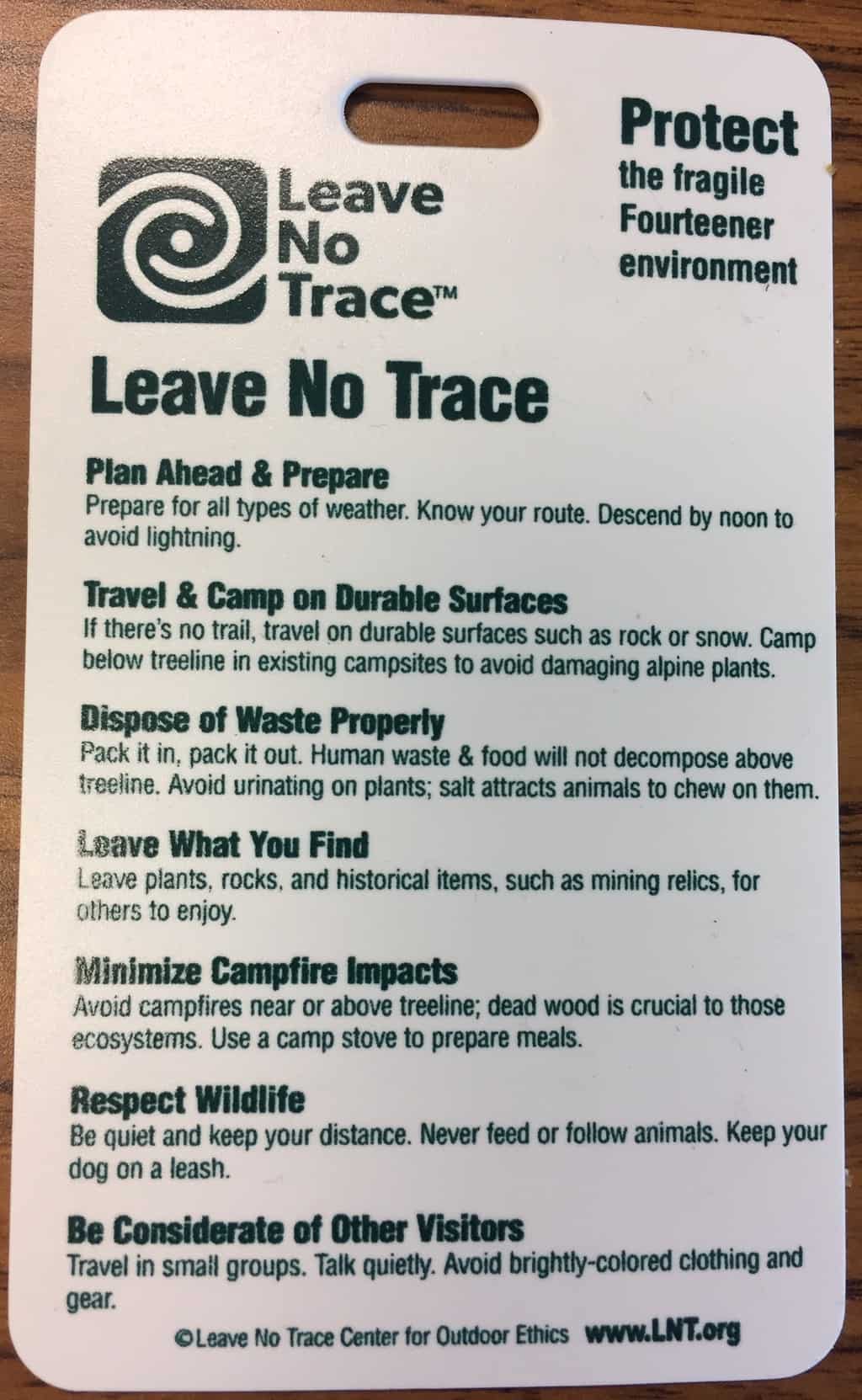
Memorial Day weekend has already started for many outdoor enthusiasts. A seemingly endless string of trucks loaded with mountain bikes, campers, RV’s, and Subaru’s transporting excited canine friends are making their way West from the Denver metro area. It’s not unwarranted though. The forecast is calling for highs in the 90’s across much of the Front Range this weekend. Vacationers are seeking cooler temps in the high country and the promise of finding some much-needed R&R in the wilderness.
In the past two weeks, CFI’s Executive Director and I have had been on the peaks installing our TRAFx infrared trail counters. The lack of snowpack in the alpine has allowed us to place nine counters in the field before the Memorial Day weekend. By comparison, CFI generally has two to three counters placed before June 1st. In my time on the trails this month I’ve noticed some resource impacts that can easily be avoided. If you’re one of the thousands of hikers heading to the Fourteeners this weekend, I’d like to impart a few words of advice in an attempt to protect the fragile alpine ecosystems and National Forests where you’ll be recreating:

1. The current condition of many of the trails around the state is a transition from patches of dry trail to areas of shallow snow coverage to some very wet and muddy spots. This period of snowmelt causes the alpine soils to become heavily saturated, leaving them vulnerable to damage from misuse. In many areas along the route you’ll be faced with the decision to either posthole through soft, mushy snow or hike across the fragile tundra where it’s dry. Postholing is part of the experience, folks! Just a few steps on the vegetation can kill off entire plant communities and contributes to trail widening and braiding.



Proper footwear is vital to ensuring you stay on the trail or in snow-covered areas. If you’re hiking in tennis shoes, you’re more likely to avoid the snow or muddy sections of the trail in favor of the drier areas. A waterproof boot will keep you dry as you trudge the melting snow and mud-soaked trail. While hiking Gray’s and Torrey’s I found several examples of where hikers have already caused severe damage because they hiked off route. These poor choices create social trails which encourages other hikers to follow suit. If you see a fellow hiker trampling the tundra, please (respectfully) educate them on the importance of traveling on durable surfaces!
2. The lack of snowpack in the mountains means we can all enjoy the trails much earlier than usual. However, the dismal snowpack also means we are at high risk of wildfires. It’s going to be extremely tempting to sit around a fire with your buddies this weekend, but please keep in mind the consequences of not controlling/extinguishing your fire properly. Many counties across the state, including Chaffee County and Park County, have already enacted fire restrictions. Please check to see if there are currently fire bans where you’ll be recreating this weekend. You can find more information here: http://www.coemergency.com/p/fire-bans-danger.html
*Fire restrictions reported in Counties highlighted blue
3. Finally, I’ll leave you with seven Leave No Trace Principles which provide guidance to enjoy our natural world in a sustainable way that avoids human-created impacts. The principles have been adapted so they can be applied in your backyard or your backcountry.
· Plan Ahead and Prepare
· Travel and Camp on Durable Surfaces
· Dispose of Waste Properly
· Leave What You Find
· Minimize Campfire Impacts
· Respect Wildlife
· Be Considerate of Other Visitors

Let us not forget the true meaning of Memorial Day – to honor and remember those who made the ultimate sacrifice in service to our Nation. From everyone here at CFI, thank you to our veterans and to those of you actively serving in our military!
Have fun and be safe this weekend! If we all recreate responsibly and do our part to help educate those who are new to the outdoors, we can reduce the impacts on our natural resources and ensure our public lands stay unspoiled for future generations to enjoy.




